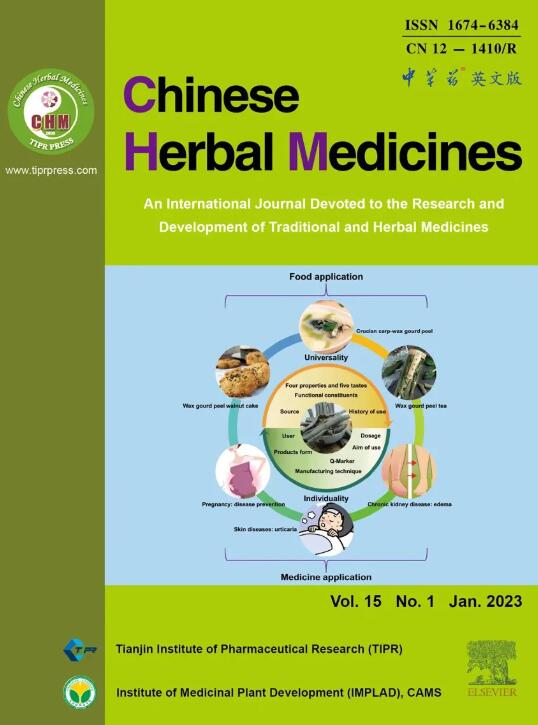姜黄:一种抗癌中药
IF 8.9
4区 医学
Q1 CHEMISTRY, MEDICINAL
引用次数: 0
摘要
姜黄(Curcumae Rhizoma)是由黄姜黄(Curcuma phaeocaulis)、黄姜黄(Curcuma kwangsiensis)和文榆金姜黄(Curcuma wenyujin)的根茎衍生而来,中国称莪术。过去,姜黄提取物通过水煎或替代方法获得,具有显著的抗癌作用。然而,混合提取物中含有多种姜黄的复合成分,导致姜黄提取物的抗癌作用机制不明确。当代研究者分别提取了姜黄的化学成分,对其在抗癌领域的有效成分进行了实验验证。大量研究表明,姜黄提取物中的姜黄酚、germacone、β-榄香烯和姜黄素具有显著的抗癌作用。药理研究表明,姜黄可抑制癌细胞的增殖、侵袭和迁移,触发细胞凋亡,调节细胞自噬,达到抗癌作用。本文总结了2013 - 2022年姜黄抗癌作用的研究进展,旨在探讨姜黄有效成分治疗癌症的更深层次分子机制。本文章由计算机程序翻译,如有差异,请以英文原文为准。
Curcumae Rhizoma: An anti-cancer traditional Chinese medicine
Curcumae Rhizoma, derived from the rhizome of Curcuma phaeocaulis, Curcuma kwangsiensis and Curcuma wenyujin, was called Ezhu in China. In the past, Curcumae Rhizoma extracts were obtained through water decoction or alternative methods, which showed significant anti-cancer effects. However, the mixed extracts contain various compound components of Curcumae Rhizoma, leading to an ambiguous mechanism of action for Curcumae Rhizoma extracts anti-cancer. Contemporary researchers have extracted the chemical components of Curcumae Rhizoma separately for experimental verification of its active ingredients in the anti-cancer field. Numerous studies demonstrated that curcumol, germacrone, β-elemene, and curcumin in Curcumae Rhizoma extracts have significant governing effects in anti-cancer activities. Pharmacological studies have shown that Curcumae Rhizoma suppresses cancer cell proliferation, invasion, and migration, triggering apoptosis and regulating cellular autophagy to achieve anticancer effects. Here, we summarized the research progress of Curcumae Rhizoma on anti-cancer effects from 2013 to 2022, aiming to explore the deeper molecular mechanisms of Curcumae Rhizoma’s active components in cancer treatment.
求助全文
通过发布文献求助,成功后即可免费获取论文全文。
去求助
来源期刊

Chinese Herbal Medicines
CHEMISTRY, MEDICINAL-
CiteScore
4.40
自引率
5.30%
发文量
629
审稿时长
10 weeks
期刊介绍:
Chinese Herbal Medicines is intended to disseminate the latest developments and research progress in traditional and herbal medical sciences to researchers, practitioners, academics and administrators worldwide in the field of traditional and herbal medicines. The journal's international coverage ensures that research and progress from all regions of the world are widely included.
CHM is a core journal of Chinese science and technology. The journal entered into the ESCI database in 2017, and then was included in PMC, Scopus and other important international search systems. In 2019, CHM was successfully selected for the “China Science and Technology Journal Excellence Action Plan” project, which has markedly improved its international influence and industry popularity. CHM obtained the first impact factor of 3.8 in Journal Citation Reports (JCR) in 2023.
 求助内容:
求助内容: 应助结果提醒方式:
应助结果提醒方式:


